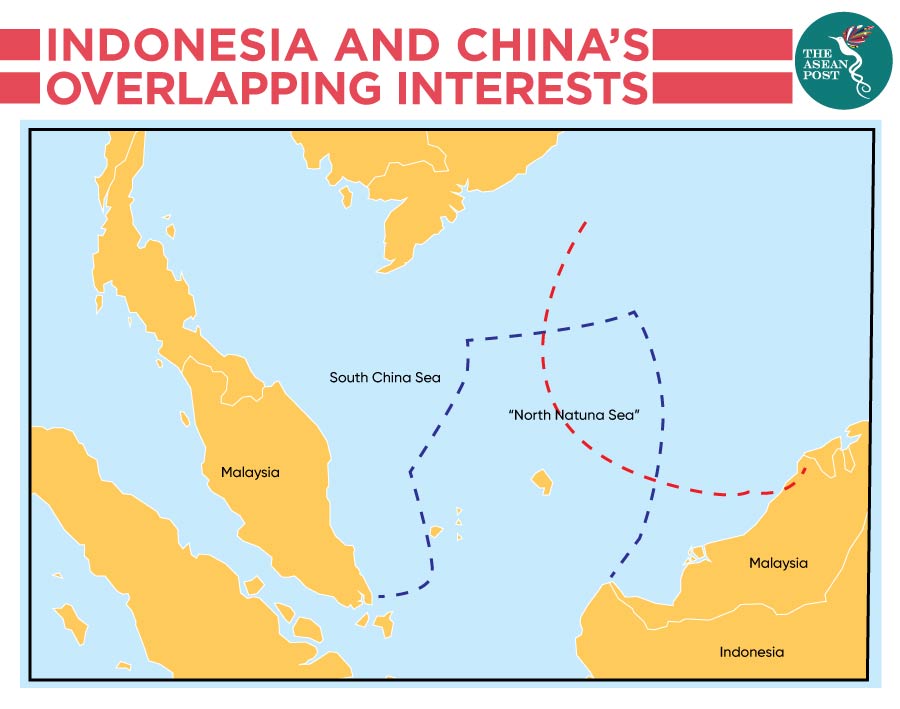“Internationalism cannot flower if it is not rooted in the soil of nationalism, and nationalism cannot flower if it does not grow in the garden of internationalism.” In one of his many powerful speeches, President Soekarno reiterated the fundamental relations between Indonesian nationalism and how it should interact in international fora.
In many foreign policy challenges facing Indonesia today, the public often sees all issues solely from the Indonesian interest point of view with a strong sense of nationalism. The rising tension in the North Natuna Sea with China, the Flight Information Region (FIR) takeover from Singapore, and law enforcement with regards to illegal fishing by neighbouring countries has primarily been viewed in the lens of nationalism and solely on a national interest point of view, without much care about international law.
Indeed, in the international legal discourse, there are a lot of different views and opinions regarding the relationship between state domestic policy and international law. The American jurist, Eric Posner from the University of Chicago argues that states should follow international law only when it serves their self-defined national interest. United States (US) President Donald Trump happens to be a believer of this view.
However, thankfully, it seems that this is not the majority view amongst international scholars in the US and the rest of the world. Most of them still believe that international laws exist and therefore should be respected.
It is interesting to see how Indonesian scholars and practitioners view the rule of international law historically and where it will lead in the future.
Historically speaking, Indonesia has always been a firm believer in the rule of international law. Since the country proclaimed its independence in 1945, Indonesia has sought recognition in the international forum through international law mechanisms.
Even further, Indonesia has inherited the spirit of international law and anti-colonialism in its constitution. The document stipulates that independence is the inalienable right of all nations, therefore, all colonialism must be abolished in this world as it is not in conformity with humanity and justice.

Moreover, Indonesia has also benefited from international law by successfully being recognised as an archipelagic state. Through the United Nations (UN) Conference of the Law of the Sea, Indonesian territory has increased by more than double.
Indonesian internationalists, scholars, and diplomats such as Mochtar Kusumaatmadja and Hasjim Djalal have played a tremendous role in not only taking advantage of international law for Indonesia, but also in shaping the rule of international law.
Today’s challenges
Fast forward to the current challenges of the 21st century, the discourse surrounding Indonesian foreign policy is more complicated than it was before. With the growing trend of populism and unilateralism, states are becoming the centre focus in viewing and engaging with international law.
There are also tendencies to not believe in multilateralism. The US’ withdrawal from some of the international treaties, the United Kingdom’s (UK) exit from the European Union (EU), and many other events have shown that there is a fundamental change of international global order including perception towards international law.
In Indonesia, national interest is also becoming more fundamental. For instance, in the current tension escalation with China in the North Natuna Sea, public discourse is becoming more and more significant. The public is demanding strong action from the Indonesian government in responding to any possible threats to Indonesia's sovereign rights at sea, undermining facts and consequences.
Another example is the many cases of law enforcement at sea. Indonesian authorities tend to also exercise enforcement of the maximum claim in Indonesia’s unresolved maritime boundaries with neighbouring states instead of enforcing the equal limit of Indonesian territory. This sometimes creates friction with its neighbours when it comes to law enforcement.
Even further, some pragmatists are also against Indonesia's foreign policy in supporting other Muslim peoples such as the Palestinians and Uighurs. They argue that it will not give any benefit to Indonesia’s national interest. These very pragmatic views can be dangerous and not aligned with Indonesia’s commitment to promoting international peace.
Indonesia should not forget that to participate in the establishment of a world order based on freedom, perpetual peace and social justice are not only an international obligation but also stipulated in the Indonesian constitution. Therefore, respecting and promoting the rule of international law becomes inevitable.
Indonesian nationalism, therefore, should focus on Indonesian national interests without leaving its commitment and obligation towards international law. In other words, Indonesia should understand that international law and international negotiations are not a zero-sum game, but a quid-pro-quo interaction.
Indonesia should balance its perception towards international law. On the one hand, Indonesia should use international law as a tool for promoting national interest in international forums. On the other, it should not breach or avoid its international obligations under existing international law.
Aristyo Rizka Darmawan is a Researcher at the Center for Sustainable Ocean Policy at Universitas Indonesia and Fellow at Center for Politics and Transnationalism at Policylab. He obtained his LL.M in International Law from the Fletcher School of Law and Diplomacy at Tufts University.
Related articles:
